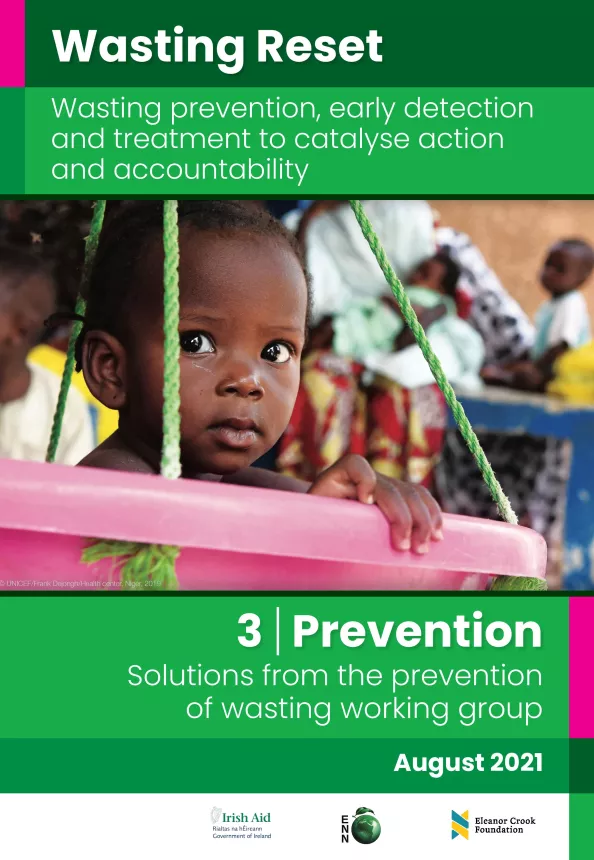‘Wasting Reset’: wasting prevention, early detection and treatment to catalyse action and accountability- Solutions from the prevention of wasting working group
Publication details
In recent years, whilst there has been an increase in interest and investment aimed at reducing wasting, including strong support from national governments, the pace of progress is much too slow to reach global goals and targets. We therefore need a ‘reset’ of childhood wasting prevention, early detection and treatment. This reset aims to galvanise multiple stakeholders around the key actions needed to stimulate progress and ensure accountability in the 2022-2030 period, and will be used by governments and organisations to inform their political and financial commitments to tackling wasting.
To provide technical recommendations on what needs to be done to significantly reduce child wasting, six independent working groups (WGs) were established. These WGs were made up of representatives of more than 40 organisations and governments, who discussed and agreed upon key messages and actions.
The key messages from this Working Group were:
- Improve situation and causal analysis, which will lead to programmes that are designed and implemented to respond to the context-specific determinants and drivers of wasting.
- Prioritise and scale up packages of targeted evidence-based preventative interventions, grounded in a systemic, gender-sensitive and comprehensive life-cycle approach. Intervention packages must be designed and targeted with individual, community and population-level vulnerability to nutritional risk in mind to address the context-specific basic and underlying causes of wasting through policy and systems strengthening.
- Fill knowledge gaps linked to the scalability and sustainability of actions for the prevention of wasting with implementation research that documents and learns from nations that have reduced wasting and kept it low, re-thinks approaches to evaluation, strengthens nutrition data and information systems and improves our understanding of nutritional risk and the costs/costeffectiveness of delivering services that have an impact on wasting.
